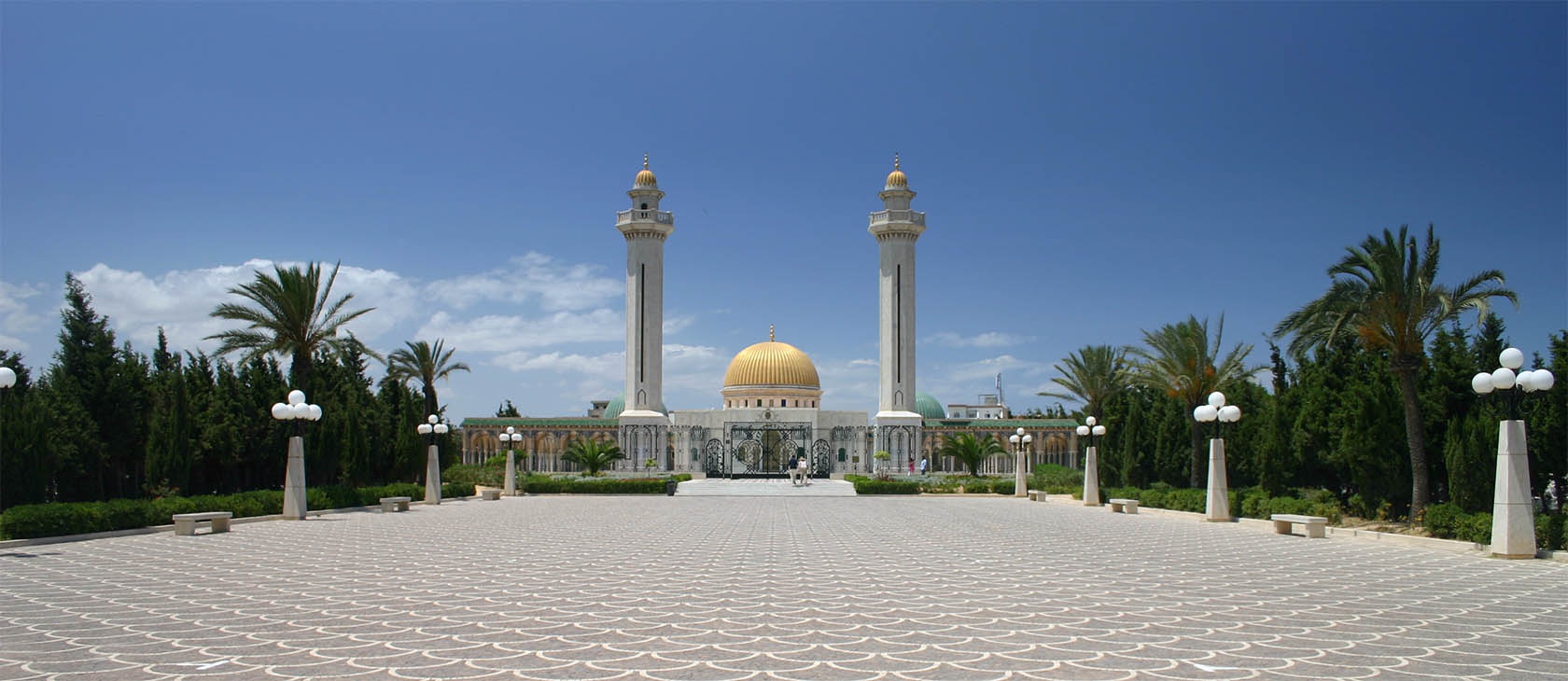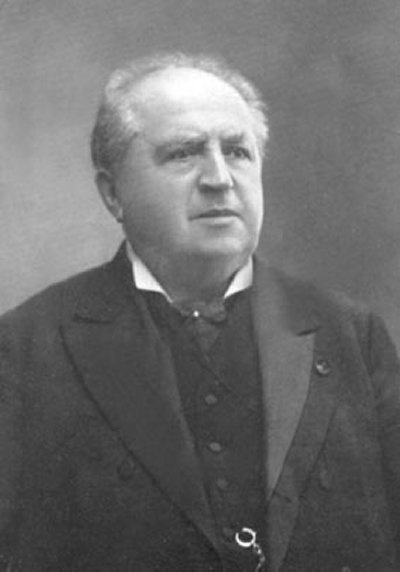Islam appeared suddenly, like a brilliant meteor, in seventh-century Arabia, and from Mecca it quickly began its miraculous victory march. This is one of the most difficult phenomena in world history to explain, especially from a psychological angle. The puzzling character of its rise has still not been fully unlocked. The growth of Christianity had been equally marvelous. In its fourth century of existence Christianity already had penetrated deep into the heart of Asia and had conquered all of Africa’s north coast and all of southern Europe. Across the entire extent of the once-mighty Roman Empire, it laid claim to spiritual dominion.
But how can this development over the course of four centuries possibly compare to the monumental triumph of Islam in less than one hundred years after the Hegira? With the exception of the greater part of Europe, Islam overran and subdued the same broad terrain of Asia and Africa, not only with its spiritual influence but with the scepter as well. It is all the more remarkable, especially in psychological terms, that whereas Christianity conquered a series of lower-standing religions, Islam was able to settle itself in country after country where the higher religion of the Cross had flourished in such surprising abundance.
Islam burst forth with a force that nothing could withstand. It drove out everything that stood before it. It cast aside the prevailing spirit and put the spirit of Islam in its place. So deep and fast was the stamp it impressed on the people it conquered that fourteen centuries later they still live in the spirit of Islam. They perpetuate its traditions and reject all other cultures out of hand, even those that are more advanced. Even today, where the railway line cuts through fields and the telegraph network spans broad acres and stretches along ancient roads, the Bedouin nomads and the settled population alike still show in form and essence the ancient unchanging stamp that the extraordinary son of Abdullah and Amina impressed, by the power of his personality, upon a small group of followers in Mecca in the seventh century.
This power was undoubtedly his zealous and resilient call for monotheism.
By what magic did Muhammad radiate such an unparalleled charisma as to bring about this unprecedented turn in world history? That it was a deliberate act of deception is unthinkable. Charlatans live a lie; they cannot bring about more than a sham state of affairs for a brief time among a small circle of supporters. No doubt Muhammad was an ecstatic-visionary type, but the sudden flaring (and no less sudden dimming) of the visionary’s brilliance does not provide the power that rules the ages. There must have dwelt in the mind of Muhammad a spiritual power of the first order. And however it may have drawn support from factors of a lower order, this spiritual power was the driving force that gave rise to his creation and that still sustains it today. This power was undoubtedly his zealous and resilient call for monotheism.
True, he once had a moment of weakness in Mecca. To save his life he recited Surah 53 as it still reads today: “Do you see Allah and Uzza and Manat as the third? These are the exalted Garanit, on whose help you may rely.” This was a moment of weakness since, after all, Uzza and Manat were idols. But after that, Muhammad always preached, with uncompromising rigor, that Alla-ta-Allah, the god of the ancient Hanifs, is the only true God. And this Allah, the All-Merciful and All-Compassionate, he held up before his followers as the only object of worship. Religion is mightier than any other single factor in the course of our personal life and in the history of the nations because it stirs the deepest part of our being. Monotheism accomplishes this most powerfully because it roots all things in a single cause, propels all of life along a fixed line, and brings together the purpose of all things into a singular, exalted focus.
[With Muhammad] the courage to sever all ties with polytheism and everything connected with it seized hold of all of life, melted virtually all resistance in its radiant glow, and necessarily brought forth a whole new life-animating force. The bravery of such a heroic spirit awakens enthusiasm, and this lofty zeal carries the crowd—indeed, drags it along and enables it to accomplish things far beyond any ordinary measure of strength.
A net over all human existence
Yet even if the nerve of Muhammad’s strength lay in his profound conviction of the sinfulness of polytheism and in his robust confession of monotheism, spiritual power in itself would never have assured his triumph. Rather, he worked out his professed principle not so much by shrewd calculation; he did it as an expression of his personality in connection with his environment and the situation of the people at the time. This opened the way for his spiritual action. Muhammad did not put religion next to life. It was not a mystery consigned to the inner chamber. Rather, he was so deeply and idealistically consumed with the all-embracing, all-encompassing supremacy of Allah’s omnipotence that he stretched his confession of Allah as a net over all of human existence. Not just the personal but the domestic, social, and political domains of life came under the claims of his religion. To Muhammad, religion as a private matter was unthinkable.
Monotheism meant much more than simply the claim that no gods may be indulged next to Allah. It also entailed that no controlling or decisive power was even conceivable, whether beside or under Allah—neither in human will, nor in long-standing custom, nor in the power of the state. Allah alone ruled, and ruled all. The universe was a mighty timepiece which Allah had designed, that he had masterfully assembled, that he had wound up, and that he had set forth to run in accordance with a fixed rule.
Monotheism meant much more than simply the claim that no gods may be indulged next to Allah.
Allah’s law and will alone determine life’s being and direction. And not just in the present; it had been so in the past and would be no different down to the most distant imaginable future. This conviction explains Muhammad’s connection to earlier revelations of monotheism. What he introduced was for him not a new religion. Nor was it simply a syncretistic blending of multiple existing religions. Allah had ruled all along, had always revealed his will, had asserted himself throughout history. But humanity had been unable to fathom the full mystery of Allah’s kingdom-rule all at once, so there had to be an always further-striding, ever-progressing revelation. Down through the ages the prophets had been the means to that end. They numbered in the thousands, but most were of little consequence; they were but sparks that had quickly flamed up and were just as quickly extinguished. Yet a few had been the leading and ruling instruments in the service of Allah. The line began with Adam. Then came Noah and Shem. Then above all, Abraham, and after Abraham, Moses, and after Moses, Jesus Christ. These all had not only testified for monotheism and defended Allah’s honor, but by their successive appearances constituted a chain of progressive revelations. Jesus stood as the final and—among those who preceded Muhammad—the highest revelation. But even though he was historically the ultimate and supreme revelation, he was only one of many prophets, alike in rank to Moses and his predecessors.
Therefore, even in Jesus the revelation of Allah was not complete. Did not the gospels themselves speak of another Comforter after Jesus? This final revelation of Allah was what had appeared in Muhammad. Muhammad consummated what began with Abraham, Moses, and Jesus. And even more, Muhammad constituted the final revelation. At the termination of all things, at the close of world history, there will no doubt be further appearances, greater revelation. But these will not belong to history, because history will have reached its conclusion. Until then—for the entire duration of our present life—there will be after Muhammad no further, no higher, no more complete revelation. What began with Adam—or Abraham if you wish—was a single process in which Muhammad was the grand finale. Thus all of faith comes down to two things: first, the confession that Allah governs all things, and second, that Allah gave his full and final revelation in Muhammad.
This commentary was excerpted from Chapter 6, “The Enigma of Islam” in On Islam by Abraham Kuyper (Lexham Press, Acton Institute, 2017). The book is available for purchase in the Acton Shop.




